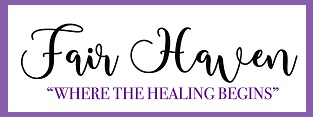Is my relationship healthy?
Relationships exist on a spectrum, from healthy to unhealthy to abusive- and everywhere in between. It can be hard to determine where your relationship falls, especially if you have not dated a lot. If you know the basics of dating you can draw the line before abuse starts. Healthy relationships are based on mutual love and respect.
Is my relationship healthy?
Does your partner respect you and your individuality?
Are you both open and honest?
Does your partner support you and your choices even when they disagree with you?
Do both of you have equal say and respected boundaries?
Do both of you understand that you need to study or hang out with friends and family?
Can you communicate your feelings without being afraid of negative consequences?
Just because there is no physical abuse in your relationship doesn’t mean its healthy.
It’s not healthy if your partner is:
-inconsiderate, disrespectful or distrustful.
-doesn’t communicate their feelings.
-tries to emotionally or financially control you by placing your money in their bank account.
-keeps you from getting a job or gets you fired.
-humiliates you on FACEBOOK or in front of your friends.
-Threatens to out you to your family.
Healthy Relationships Are Built with Certain Principles
These are Respect. Equality, Safety, Trust
Respect is…
Here, we’re talking about the definition of respect being similar to “a feeling or understanding that someone or something is important, serious, etc., and should be treated in an appropriate way.”
Respect is about appreciating your partner(s) viewpoints, opinions, beliefs, and decisions — both in general, and regarding your relationship. It’s about setting and observing boundaries, hearing your partner when they say “Yes,” “No,” or “Maybe,” and making sure you ask for their input to begin with.
And respect is about recognizing the importance of the relationship you’re in. Following the guidelines you’ve set up for each other, treating the relationship with care, or at least the amount and type of care that you know is expected by your partner(s).
Equality is…
Here, we’re talking about the definition of equality of “being equal, especially in status, rights, and opportunities.” Take special note here that I’m using the word equality (instead of my generally-preferred-in-social-justice-context “equity”) intentionally. We aren’t looking for fair amounts of access, but a truly balanced amount of power amongst the people in the relationship.
Equality is about making decisions together, or at least creating agreements for how decisions will be made. It’s about your partner(s) having the same amount of voice and power, and knowing that the partners in a relationship have an open seat at the decision-making table (even if they don’t choose to sit in it).
This can be tough, because everyone is navigating the very unequal world-at-large with different amounts of power (some of us granted more, others less, because of our social identities), so it’s easy for us to slip into either recreating those dynamics in our relationships, or inverting them to a different harmful outcome.
Safety is…
Here, we’re talking about the definition of safety of “the condition of being protected from or unlikely to cause danger, risk, or injury” with one big caveat: at the cause or negligence of your partner(s). That is, a healthy relationship doesn’t require safety from the elements, a crashing economy, or an errant banana peel. It’s safety with and from each other in the relationship.
Safety is about knowing that your partner(s) won’t intentionally hurt you — physically, emotionally, psychologically, or otherwise. It’s knowing that they are looking out for you, for your interests, and for your general well-being.
Trust is… Here, we’re talking about the definition of trust similar to “the belief that someone or something is reliable, good, honest.” A mutual trust that the partners in the relationship can believe one another, rely on one another, and be generally good to one another. Trust is about knowing that you can believe your partner(s), that they are saying what they mean, and that when they act you can reasonably assume they’re acting in ways that are good. It’s knowing that you aren’t being manipulated, mislead, or taken advantage of.



